Looking after your heart health
So, we know that keeping our heart healthy is important.
How can we take steps to do this?
Keeping our hearts healthy is something we should all prioritise. A vital organ, the heart plays a critical role, pumping blood around the body. But our daily lifestyles, filled with stress and unhealthy options, place a big burden on our hearts and we often don’t realise until the damage is done.
For May Measure Month, an awareness campaign created by the International Society of Hypertension, we’re looking at the importance of our heart health, and the steps we can take to improve it.
What is the heart and what does it do?
The human heart, a muscle about the size of your fist, works like a pump sending blood around your body to keep you alive.
Your heart beats around 100,000 times every day, continuously pumping around eight pints of blood around your body through a network of blood vessels. This blood delivers oxygen and nutrients to all parts of your body, helping your organs and muscles work properly. It also carries away unwanted carbon dioxide.
What can cause damage or disease to your heart?
When the flow of oxygen-rich blood to the heart muscle is blocked or reduced, coronary heart disease can happen. This puts an increased strain on the heart, and can lead to:
- Angina – chest pain caused by restricted blood flow to the heart muscle
- Heart attacks – where the blood flow to the heart muscle is suddenly blocked
- Heart failure – where the heart can’t pump blood around the body properly
What causes heart disease isn’t completely clear but there are lots of factors which can increase your chance of getting it. These risk factors include:
-
High cholesterol
Cholesterol is a fatty substance found in the blood. Too much of it can cause your blood vessels to narrow, increasing your risk of developing a blood clot. -
Smoking
Smoking is a significant contributor for heart disease, with the harmful substances in tobacco damaging blood vessels. -
High blood pressure
High blood pressure is one of the most important risk factors. If your blood pressure is too high, it can damage your blood vessels. -
Diabetes
Diabetes causes your blood sugar level to become too high. These increased levels of blood sugar can damage the blood vessels. Many people with type 2 diabetes are also overweight which is another key risk factor for heart disease. -
Inactivity and obesity
If you don't exercise regularly or are overweight, it's more likely that you'll have associated risk factors, such as high blood pressure or high cholesterol levels.
How can you detect heart disease risks?
Often, we aren’t aware of the damage we are doing to our heart until it becomes more serious. But there are ways to check our heart health and the associated risk factors, to determine the likelihood of heart disease in the future.
Blood tests can reveal important information to help empower us to make the right choices for our health and wellbeing, avoid risks and make necessary changes.
Comprehensive tests, such as our cardiovascular risk profile, can include a range of diagnostic checks, such as full cholesterol lipid panel, Apolipoprotein A, Apolipoprotein B, Lipoprotein (a) and high sensitivity CRP, some of the key indicators of heart health and function.
How can you keep your heart healthy?
So, we know that keeping our heart healthy is important. How can we take steps to do this? Fortunately, there are plenty of small, actionable things we can do, day-to-day to look after our hearts, and our overall health. These include:
- Eating a healthy diet. Make sure you include plenty of fresh fruit, vegetables, and wholegrains. Try to limit your salt intake and keep an eye on your cholesterol.
- Keep active. Regular exercise has many benefits for your whole body and your heart will certainly thank you. Try to make time for a little activity every day, be it walking, dancing, running, swimming or anything else that you love, and which gets your blood pumping.
- Quit smoking. There are no health benefits associated with smoking, and plenty of harmful side effects. If you smoke, consider quitting as soon as possible and seek help and support if you’re struggling to do so.
Booking your private walk-in heart health blood test in London
If you are concerned about the health of your heart, or other conditions that might be worrying you, private blood testing is a good option to help you get answers fast.
We make sure the experience of getting a private blood test in London is as easy, convenient, and painless as possible. Here’s how it works:
After you have selected the right test for you, simply order online through our secure payment system or chat to a member of our team. Once your order is placed, you can visit our central London walk-in centre on the same day to have your blood sample collected by one of our trained phlebotomists.
At your appointment, the friendly team will talk to you about your test, collect your blood sample and send it off for testing at an accredited partner laboratory. All you need to do is arrive for your appointment.
Clear, accurate results
The time it takes to receive your results will depend on the type of test you have chosen. When they are ready, your results will be sent directly to you, via email, within the time specified. If you would prefer to receive a paper copy of your results through the post, that can easily be arranged for you.
You can also choose the option of reported or unreported results. Reported results include information and comment from our GP which you may find helpful to discuss with your own consultant, or for your records.
Find out more about our range of heart health tests









